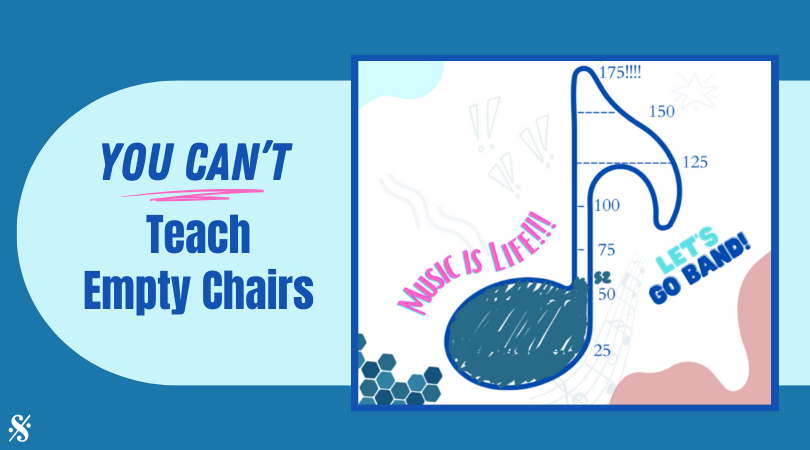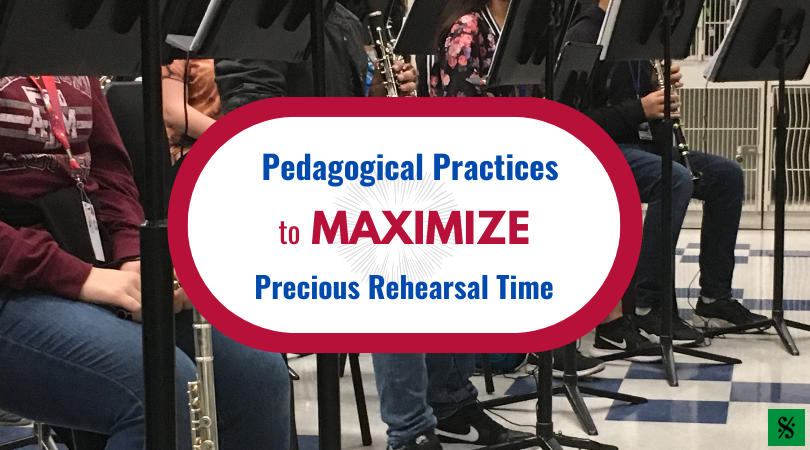If you’re reading this post, you probably teach in a Title One system and understand the challenges. Most of our students do not come to us set up for academic success despite the excellent work that our elementary schools have done. As a result, we as directors, have to choose to be very engaged in how our students are doing academically. So how do we do this?
For our band program it starts with checking grades weekly and distributing progress reports to students every Monday. Students are taught how to read a progress report and how averages are arrived at mathematically since daily work is 40% and assessments are 60%.
When we first started this, we simply handed out the progress reports. It helped, but it wasn’t enough. It turns out that personal contact from a director is important. As a result, one of us conferences with every student who is failing a class, every week. Each conference does not involve talking with the student about why they shouldn’t be failing. Instead, we work to teach our students to be able to tell us why they are failing, what they are doing to fix the grade, and any assistance they need to make that happen. This prevents the normal middle school default of “I don’t know” when asked why they’re failing. Students who come in without that information are followed up with until they take responsibility for the information. So far, we have never had a student not follow up after a few days of having to explain to us why they haven’t taken care of business.
As the six-week term goes on, we will also reach out to our student’s teachers to verify that students are taking care of business. We can see the scores in a class but it doesn’t tell us that a student isn’t paying attention in class, is struggling with a social issue in that class, or giving their best effort but simply struggling with the subject. This information allows us to help our students and also makes it possible for us to help the teacher. Students know we’re talking with each other and that we’re following up. That kind of accountability helps all of us!
We also celebrate the victories. If a student gets a grade up to passing it’s not unusual for one of us to meet them at the door with a high five, or a treat that the student particularly likes. We celebrate as a class when we all pass our classes and this semester we’re celebrating as a program because our 196 students passed 98% of their classes. This is a huge victory for our kiddos and as a result they’re getting a celebration after school with pizza and ice cream, a dance, and a basketball tournament. They’re so excited!
Right now, you’ve read through this and you’re thinking “This is a lot of work! I don’t have time for this!” You’re right, it is a lot of work. However, you don’t have time NOT to do this.
Teaching is a customer service job. We have to meet our customer where they are and convince them that they want to purchase our product. Working with your students for academic success is the first step to putting together a successful band program in a Title One school.
Danika White is currently the band director at Rayburn MS in Northside ISD in San Antonio. She spent the first seventeen years of her teaching career in Missouri where her bands received numerous I ratings at State Contest, her solo and ensemble students were very successful at both the district and state level, and she had All-State Band members on flute, clarinet, and French Horn. Her marching bands were honored to represent Missouri at the National Memorial Day Parade in Washington D.C. twice in five years. Ms. White holds degrees from Central Methodist University and the University of Arkansas.
Related Reading:
Improving Section Rehearsal & Concert Attendance at a Title One School
So I teach at a Low SES School – Language and Delivery
Teaching with Poverty in Mind
If you would like to receive our weekly newsletter, sign up here.
Don’t forget to like us on Facebook too!
Learn. Share. Inspire.
BandDirectorsTalkShop.com







Leave a Reply
You must be logged in to post a comment.